While you probably have a jar of honey on hand to sweeten tea and you might already know that honey can help soothe a sore throat, this sweet, syrupy condiment actually has other surprising side effects on your health you might not be aware of. We asked registered dietitians and other experts about the benefits and drawbacks of including honey in a healthy diet. Keep reading to find out some great things about this superfood and a couple of reasons to think twice about picking up the jar next time you hit up the grocery store.
Honey can help reduce inflammation
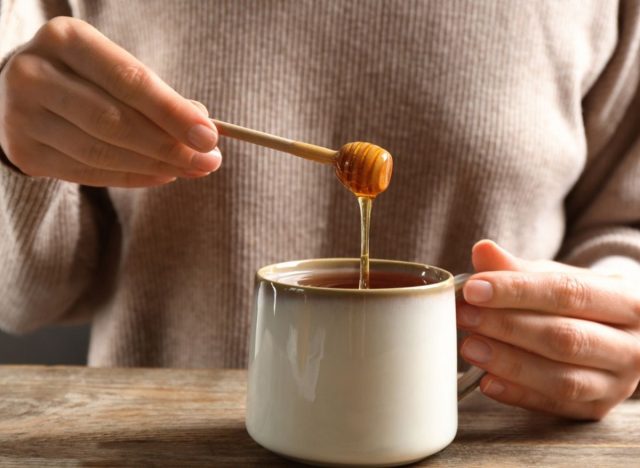
Lisa Andrews, MEd, RD, LD, Owner of Sound Bites Nutrition, says that one of honey's surprising side effects is that it can help reduce inflammation. "Honey contains anti-inflammatory properties by lowering prostaglandin levels in the blood." According to a study from the International Journal of Research and Review, Kaliandra natural honey, which hasn't been processed or filtered, was shown to reduce dysmenorrhea (painful menstruation) and prostaglandin levels thus attesting to its anti-inflammatory benefits.
Honey may reduce cough severity
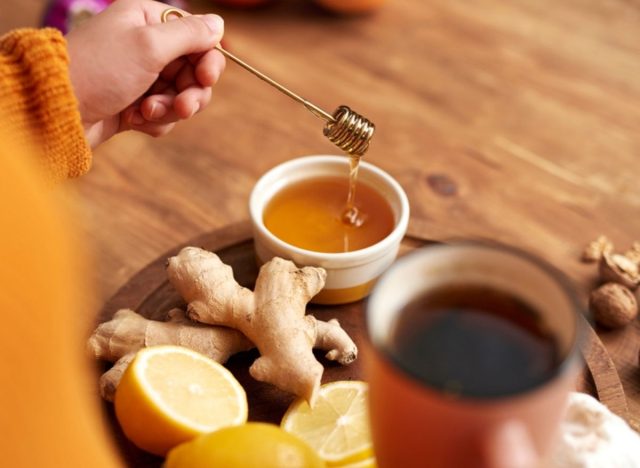
As a kid, you probably were given a cup of warm tea with honey when you were sick with a cough. Well, there's a reason for that. "Consuming honey may aid in reducing symptoms of upper respiratory infections including cough frequency and cough severity," says Andrews. In fact, according to the Mayo Clinic, studies showed that honey worked just as well, if not better, than popular cough medicines with the ingredient dextromethorphan. Plus, always remember to never give honey to a child younger than 1, due to rare incidences of botulism.
Honey may help relieve GI conditions
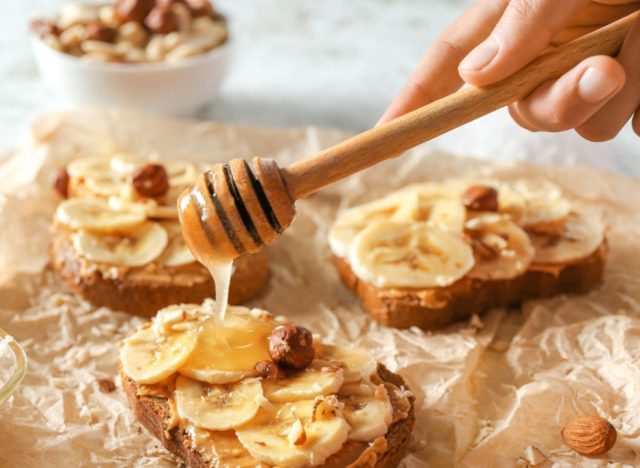
O'Connor adds that honey can help alleviate symptoms of some gastrointestinal issues like diarrhea, constipation, and ulcers. The Mayo Clinic backs this up, citing evidence that suggests it may even help reduce anxiety.
Honey can protect against free radicals
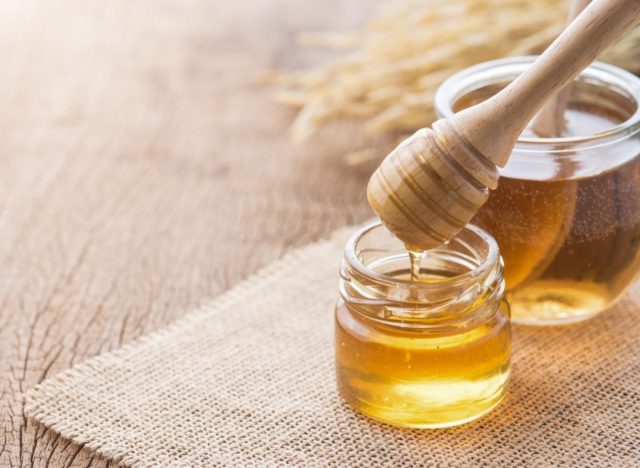
You may have heard of skincare products protecting against free radicals, but so can some foods that you eat. "Honey is understood to provide antioxidant benefits by protecting the body from free radical damage," says Heather Sachs, MS RD, Director, Regulatory Affairs at Blue Apron. "Free radicals are atoms or molecules that can cause damage to your body's cells."
Honey can protect your heart
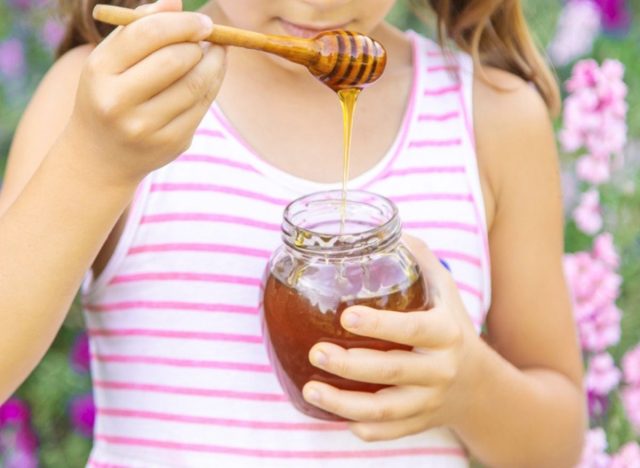
Add some honey to your yogurt, oatmeal, or smoothie to reap the cardiovascular benefits of antioxidants. "Most people don't know that honey is actually an amazing source of antioxidants. Just make sure you're getting high-quality, minimally processed honey," says Breanna Woods, MS RD, registered dietitian for Blogilates. "Antioxidants protect the cells from free radical damage and prevent a variety of diseases, including heart disease."
Honey can be damaging to the teeth
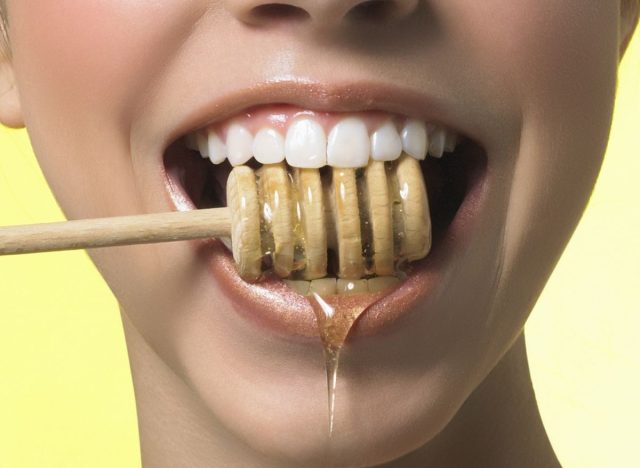
Nicole Lindel, RD and Everlywell Advisor suggests you keep an eye on your honey intake because it can cause some damage to the teeth. Similar to other types of sugars, honey can increase the risk of tooth decay and gum disease.
Honey can be problematic for those with fatty liver disease
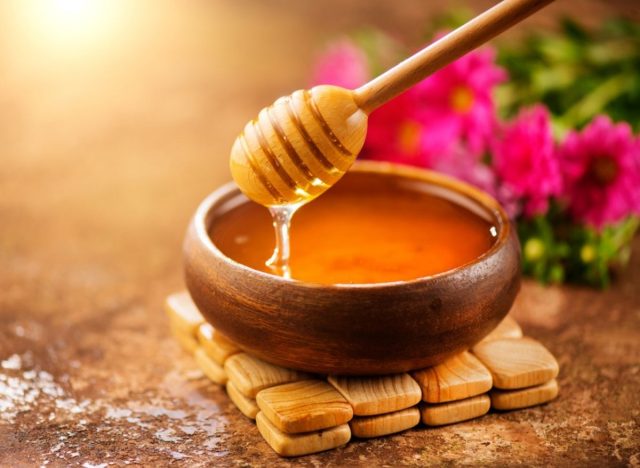
Fructose is the main sugar found in honey. With that in mind, it can be dangerous for those with fatty liver disease. "Fructose is metabolized differently than other sources of energy," says Lindel. "It is metabolized by the liver, which may be problematic for those with fatty liver disease. Individuals with fatty liver disease are typically advised to avoid alcohol and limit fructose intake for this reason."
Honey will not lessen allergy symptoms
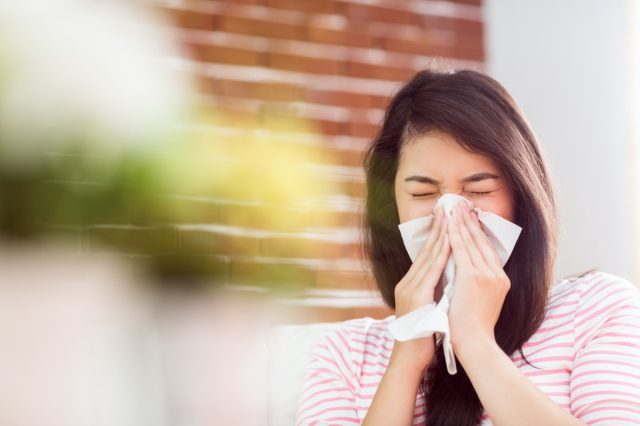
As we've previously reported, this long-touted remedy is actually a myth. "Unfortunately, [eating local honey] does not help with allergies because the pollens that bees collect are usually from flowers, which are not as potent and don't provoke your immune system like other pollens (i.e. trees, grasses, and weeds) which cause 'classic' seasonal allergy symptoms," said Lakiea Wright, MD, an allergist at Women's Hospital in Boston and medical director at Thermo Fisher Scientific. In fact, this remedy may actually backfire. "In some cases, eating local raw honey may contribute to allergic symptoms because if you are highly sensitized, ingesting pollens in small amounts can cause local symptoms like an itchy mouth," says Dr. Wright.
No comments:
Post a Comment